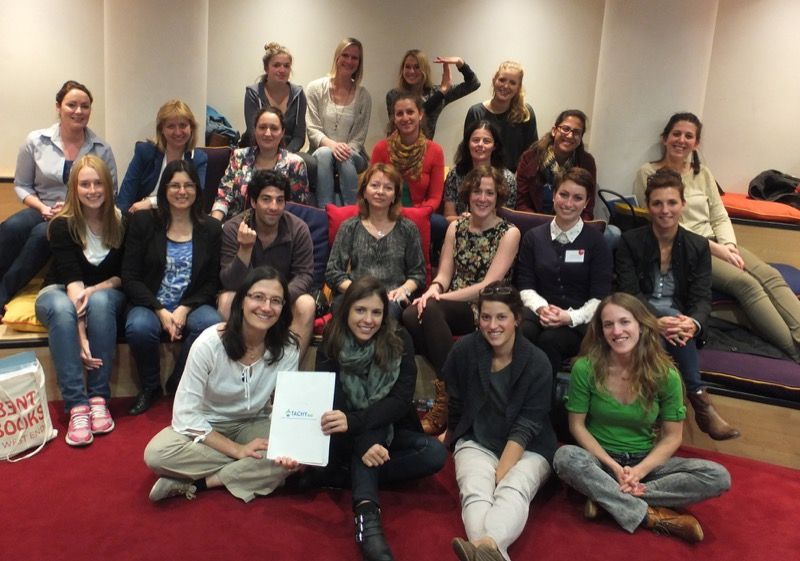Children’s Research Centre hosts International Summer School in Child and Youth Welfare
Posted on: 30 July 2014
The Children’s Research Centre (CRC) at Trinity College Dublin hosted 27 students and staff from Israel, Russia, Ireland and Germany at a week-long Summer School as part of the EU Tempus Project: Transnational Academic Careers in Child and Youth Welfare (TACHYwe).
TACHYwe, led at Trinity by Senior Research Fellow in the CRC, Dr Michelle Share, is a transnational collaborative learning and working environment that aims to develop and implement postgraduate courses on international child and youth welfare. It has been grant funded by the EU Tempus IV programme to the amount of €970,000 over three years.
Prior to attending the Summer School, students participated in a Virtual Learning Environment (VLE) developed at the CRC with Trinity’s Centre for Academic Practice and Student Learning (CAPSL). Students viewed online lectures from staff at the University of Hildesheim, Hebrew University of Jerusalem, Don State Technical University and Trinity, and completed blogs and discussion activities.

At the Summer School students’ VLE activities were developed through a cross-national comparative project on institutional care. They attended lectures and seminars on youth mental health, youth homelessness and undocumented migrants. A highlight was a visit to the Ombudsman’s for Children’s Office for an interactive seminar presented by Empowering Young People Living in Care (EPIC).
The Summer School concluded on a light-hearted but informative note as the students presented photographs and artefacts, music, stories and games that represented growing up in Israel, Russia, Ireland and Germany.
“We set ourselves quite a challenge by developing a VLE for the Summer School but it certainly paid off,” stated Director of the Summer School, Dr Michelle Share. “As the students were from diverse higher educational institutions and countries it was important that they came with some shared foundational knowledge. Instead of students just attending a series of lectures, they could develop their VLE educational experience and interrogate the Summer School theme collaboratively and cross-nationally. “
Dr Share continued: “The Summer School and VLE have given participants the opportunity to explore commonalities and differences between institutional care in Ireland, Israel, Germany and Russia. They can now critically assess institutional care issues across these countries to inform research, policy and practice in the field of child and youth welfare. Students considered the Summer School to be both an enriching and challenging experience.”
